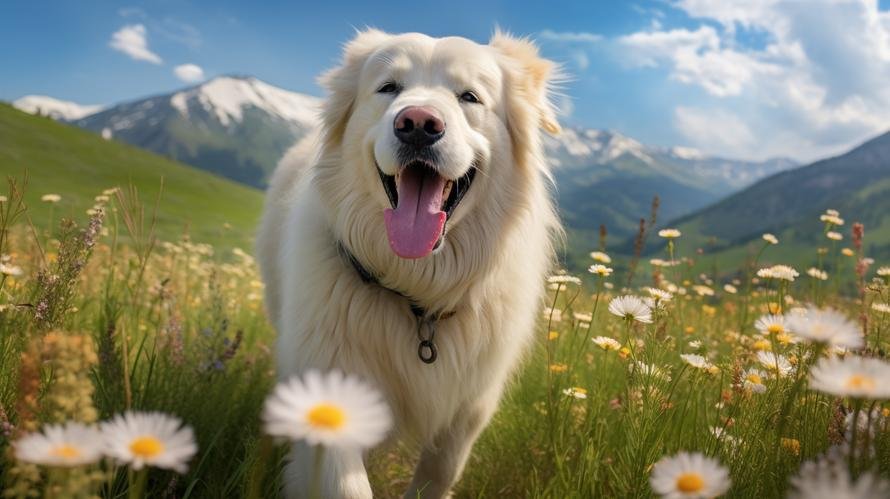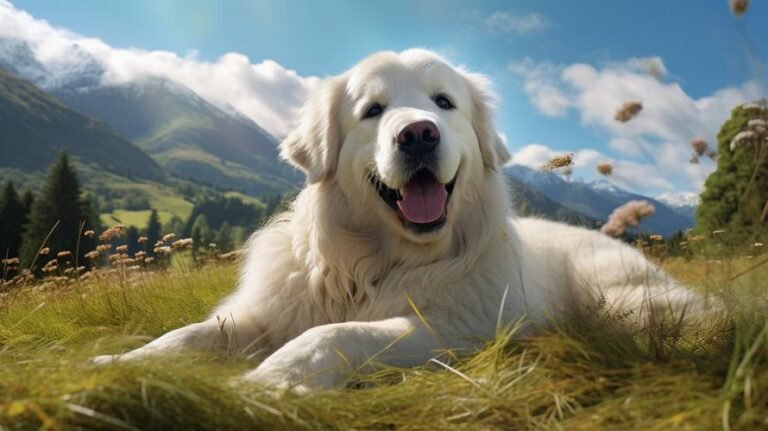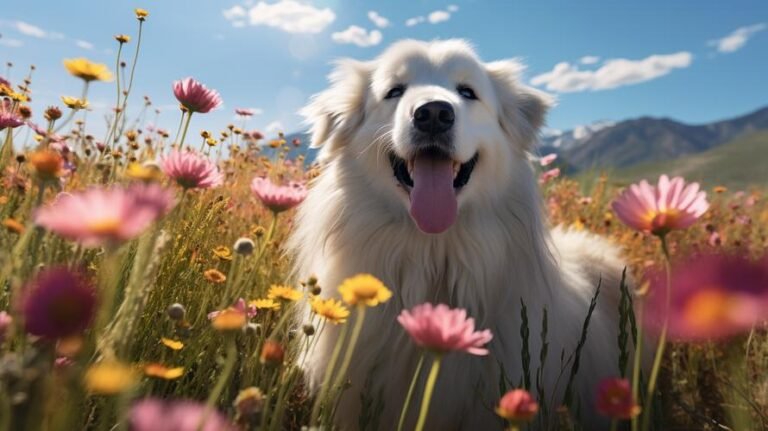Did you know, the majestic Great Pyrenees was not always a household pet? Instead, they were once noble guardians of livestock on the harsh mountainous terrain of the Pyrenees Mountains in Europe. These regal dogs were tasked with protecting their charges from dangerous predators like wolves and bears. How’s that for a courageous canine ancestry?
Stepping into modern times, the Great Pyrenees has adapted into a charming addition to many families. While their patience, loyalty, and serene temper make them fabulous companions, potential owners might ask: Can this mountain-born breed be a healthy member of my family?
The Great Pyrenees lifespan typically ranges from 10 to 12 years, which is an average lifespan for dogs of this size. Of course, just like humans, individual health can vary greatly. So, let’s dive deeper into their general health outlook and how owners can support their Great Pyrenees in achieving optimal health.
Yes, a Great Pyrenees can be a healthy dog, but there are certain breeds specific maladies you should know about. Let’s begin with their bones. Hip and elbow dysplasia are common concerns for large dog breeds, and the Great Pyrenees is no exception. Simply put, this condition involves the joint’s improper development, which can cause painful arthritis down the line. Regular check-ups and maintaining a healthy weight can effectively manage these concerns.
The breed is also predisposed to a condition called bloat, or gastric dilatation-volvulus. This potentially life-threatening condition involves the stomach filling with gas and twisting. While it’s a concern for most large breeds, regular feeding schedules and smaller, more frequent meals instead of one large one, can help prevent this dire condition.
Now, let’s not forget about those lusciously thick white coats! While they’re perfect for braving frosty winters, they need regular care to stay healthy and clean. Regular brushing prevents matting and skin infections, and they’ll shed their undercoat twice a year. During these times, daily brushing might be necessary.
Eye problems are another issue to watch out for in this breed. Conditions like cataracts, progressive retinal atrophy, and entropion (where the eyelids roll inwards) might affect your Pyrenees. Regular vet check-ups can help detect these problems early and be managed effectively.
When cared for properly, these potential health issues should not deter you from bringing a Great Pyrenees into your family. In fact, proactive care and aware pet parenting can result in your furry friend living a long, full life.
Remember, a balanced diet is crucial for a healthy Great Pyrenees. High-quality dog food that’s age and size appropriate with a balance of proteins, carbohydrates, fats, vitamins, and minerals is ideal. And while they’re not the most active breed, regular exercise in the form of a daily walk or playtime in the backyard can help prevent obesity and related health issues.
Moreover, as a responsible Pyrenees owner, make sure you keep up with their regular vet visits. Early detection of potential health issues, combined with prompt treatment, is key for maintaining your Pyrenees’ health.
Just like training them to not chase after squirrels, training them to have healthy habits can also increase their lifespan. Oral care is essential too —bad breath isn’t just unpleasant, it can be a symptom of dental disease. Regular tooth brushing at home and professional dental cleanings can prevent these problems.
Finally, mental stimulation is as important as physical health. Great Pyrenees are intelligent dogs, and activities that stimulate their minds helps to keep them happy and healthy. Try interactive toys or games, and even agility training, to provide mental enrichment.
In conclusion, yes, a Great Pyrenees can be a very healthy dog. As an owner, you have a significant role to play in your furry friend’s well-being. Regular check-ups, a balanced diet, plenty of exercise, grooming routines, and mental stimulation can all contribute to his overall health and happiness. Armed with knowledge and best practices, you can ensure that your Great Pyrenees will be a hardy, healthy, and lovable member of your family for years to come.



